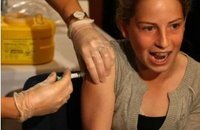Bill in Alabama could help prevent cervical cancer and save lives of women

Selma, AL
Cervical cancer claimed an estimated 3,870 women nationwide this year with another 11,070 reported cases, according to the National Cancer Institute.
Cervical cancer is a disease in which malignant cells form in the tissues of the cervix, located at the lower end of the uterus, leading to the vagina, or birth canal. Infection of the cervix with human papillomavirus (HPV) is the most common cause of cervical cancer, but it’s important to know that not all women with HPV infection will develop cervical cancer.
State Rep. James Gordon, D-Mobile, has pre-filed a measure in the Alabama House that would require the State Board of Health to provide each parent or guardian of a female student entering the sixth grade information about infection and the immunization against HPV. Further, the measure would require each school that enrolls a sixth grade female to have the parents or guardians furnish to the school by the 20th day of the new school year a written statement to reflect the parent or guardians had received the information; the student has received or is receiving the immunization or the parent/guardian has decided not to have the student’s information handed over to the school.
Knowledge can save lives. Gordon’s attempt at educating Alabama parents and guardians is on target.
Labels: Cervical Cancer Legislation, Cervical Cancer Prevention, Cervical Cancer Vaccine, HPV Vaccine





